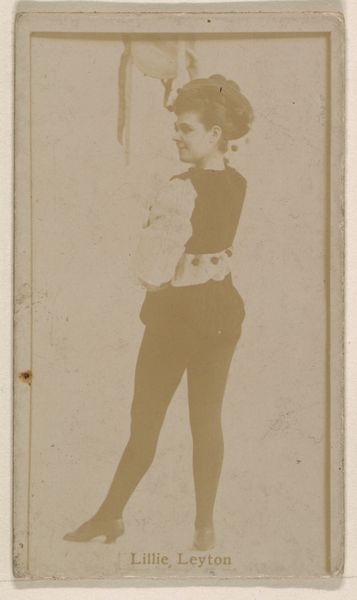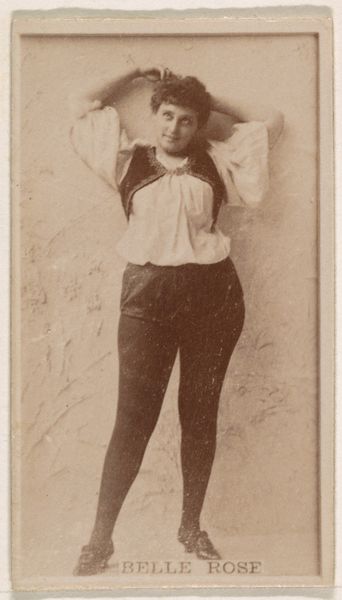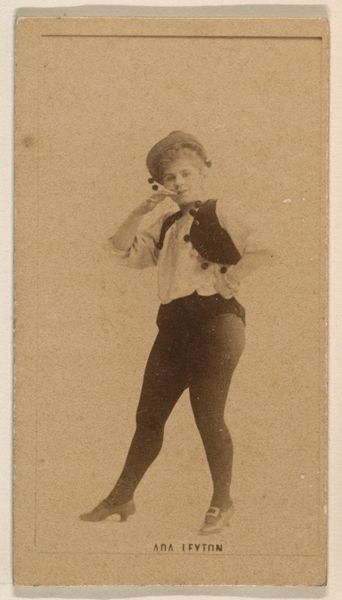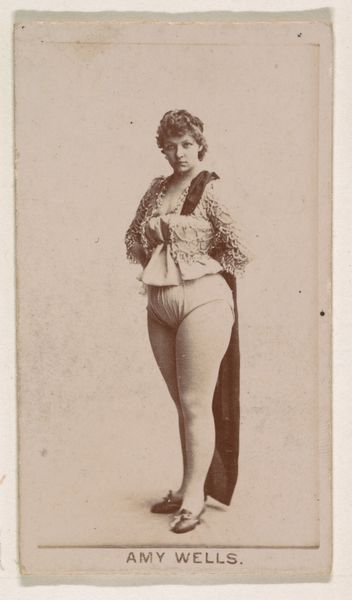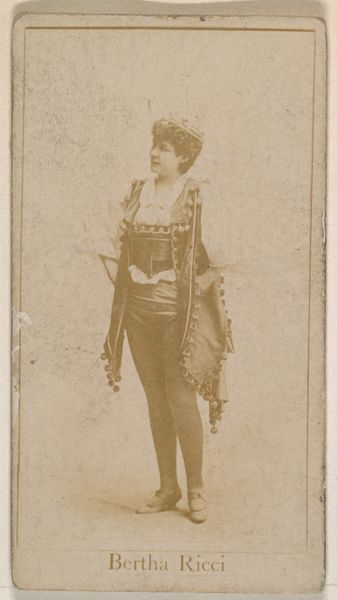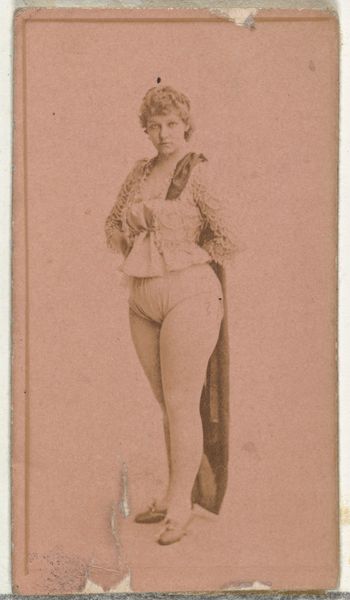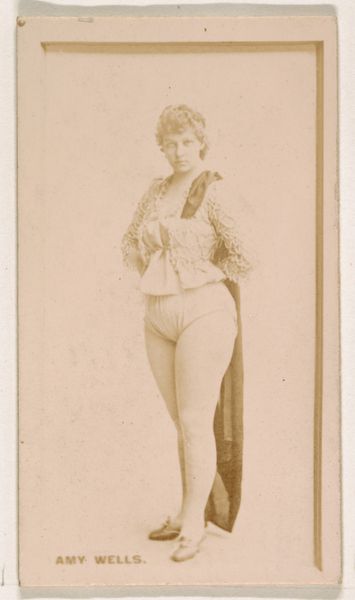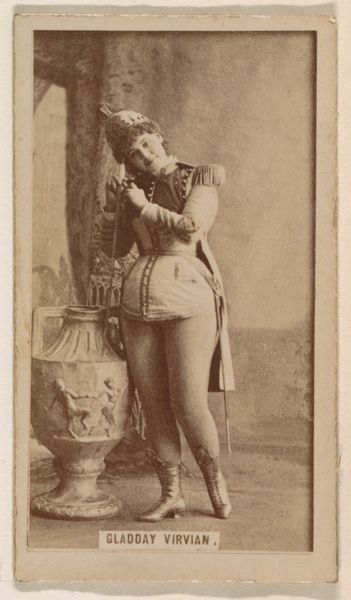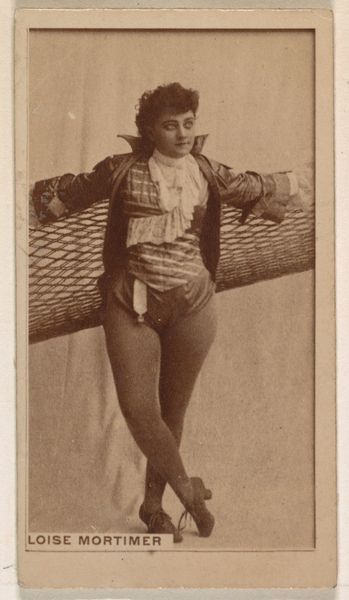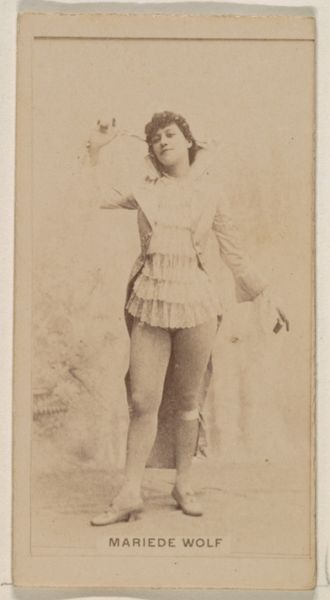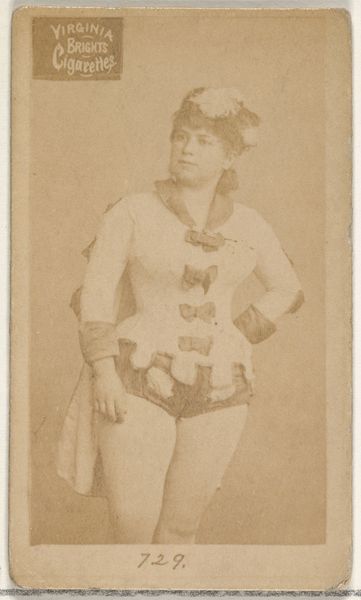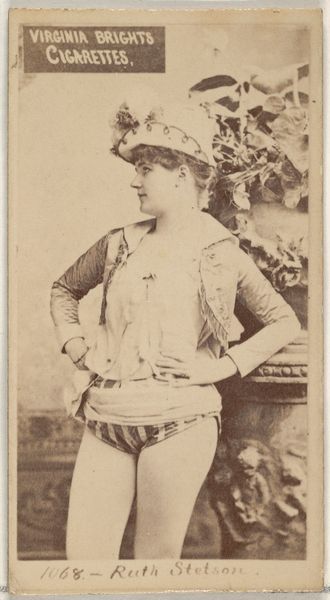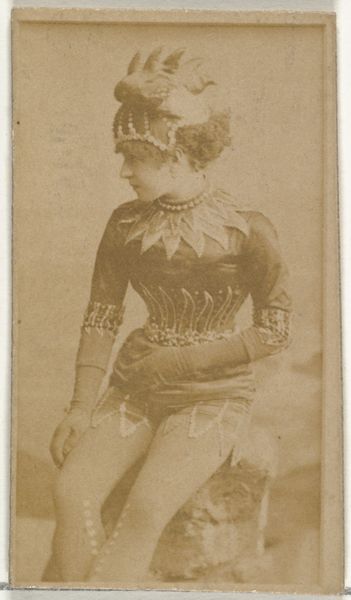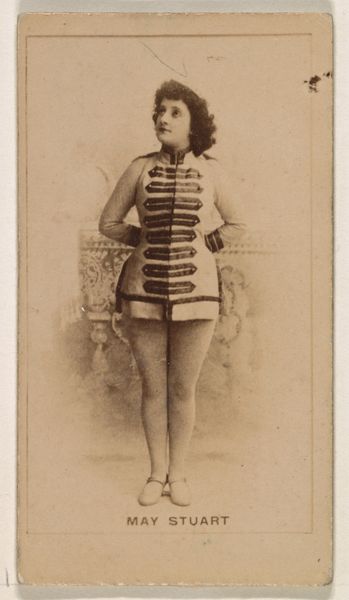
Lillie Leyton, from the Actresses series (N245) issued by Kinney Brothers to promote Sweet Caporal Cigarettes 1890
0:00
0:00
print, photography
#
portrait
# print
#
photography
Dimensions: Sheet: 2 1/2 × 1 7/16 in. (6.4 × 3.7 cm)
Copyright: Public Domain
Curator: Immediately, I'm struck by the subject’s stance; arms crossed, slight smirk. A quiet defiance seems to emanate from the figure. Editor: That’s interesting. The item before us is a photograph titled "Lillie Leyton," dating back to 1890. It was one of many in the "Actresses" series (N245), put out by Kinney Brothers to promote Sweet Caporal Cigarettes. The Met owns the piece. Curator: So it's essentially advertising ephemera! But still, it’s a captivating portrait. Consider the cultural context—actresses becoming celebrity figures, mass media emerging... Her pose projects such a confident gaze that really seems to meet and challenge yours. Is it an indication of a performer's burgeoning power? Editor: Power, perhaps, but also commodity. Note the composition: she’s positioned against a very plain ground and given an unnatural sepia wash that normalizes this print among others of its set. While that costuming might signal a specific character—her visuality seems deliberately abstracted toward ideal types. The print must present not the particular actress, but a fantasy that cigarette purchasers might enjoy again and again in their possession of such series. Curator: Absolutely, it served commercial purposes. Yet the choice of Lillie Leyton, her look, had to resonate with something culturally significant. Actresses were, after all, cultural trendsetters. Also, I am seeing an emerging aesthetic of Japonisme creeping into the portrait, even down to its commercial intentions. This hints at a fascinating intersection of commerce, performance, and emerging aesthetics that shaped identity in that era. Editor: Japonisme makes its presence felt even in this reduced format, which mirrors smaller Japanese prints. In this vein, the figure gains from a highly contrasted printing and an essentialized layout: each contributes to the flatness reminiscent of block-printed ukiyo-e. It appears the photographer wants to mimic, while idealizing, Eastern art. Curator: I concede the artistry employed here certainly elevates it beyond mere commercialism. It is fascinating how a simple cigarette card encapsulates broader cultural shifts in perceptions of women and new artmaking directions in response to new technology, aesthetics, and economics. Editor: Indeed, an item intended for disposal opens our minds to enduring human trends in artistic inspiration, consumerism, and representation.
Comments
No comments
Be the first to comment and join the conversation on the ultimate creative platform.
